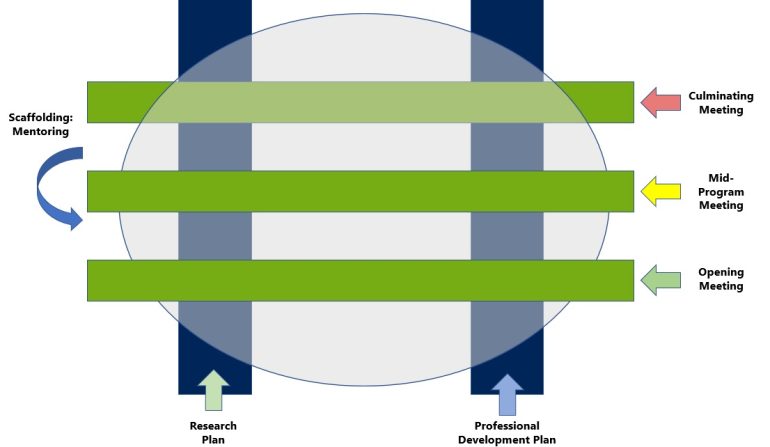The eFellows Engineering Postdoctoral Fellowship Program, funded by the National Science Foundation (NSF) and administered by the American Society for Engineering Education (ASEE), is a fellowship program that supports early career engineers conducting high level research while preparing them to become academic leaders.
The eFellows program was launched in 2021 to enable recent engineering doctoral graduates to obtain two-year postdoctoral positions at U.S. academic institutions despite the current economic downturn caused by the COVID-19 pandemic. The eFellows program is designed to provide rich postdoctoral experiences that will prepare participants for successful research careers in academia or industry while also serving as an employment bridge during a time of hiring freezes and job market uncertainty, helping to retain fellows who might otherwise leave the engineering research career pathway.
The eFellows program places diverse early career engineering PhDs into university research postdoctoral fellowships. In addition to hands-on academic research on their host campuses, each cohort participates in centralized professional development activities, including interactive webinars and community-building convenings, designed to prepare them for future research careers, and a mentoring program which provides a supportive learning community. The program employs an outcomes-based academic program design methodology aligned with engineering-specific professional outcomes.
eFellows Program Structure

Based upon this theoretical foundation, the eFellows program structure includes vertical and horizontal curricular threads with scaffolding. The vertical threads include individual Research Plans for each fellow on their host campus and centralized professional development programming facilitated by ASEE staff. The horizontal threads include cohort meetings that serve to integrate learning across the vertical threads to situate individual experience within a broader context and to generalize knowledge-building on the collective experiences of their peers. Scaffolding includes a helpdesk to assist fellows in navigating their fellowship experience and a research-informed, culturally responsive mentoring program. A cohort model is also implemented with each fellow grouped into one of two cohorts. The duration of each fellowship is two years. The cohort model serves to provide the fellows with a learning community, peer mentoring, and a nurturing environment.

